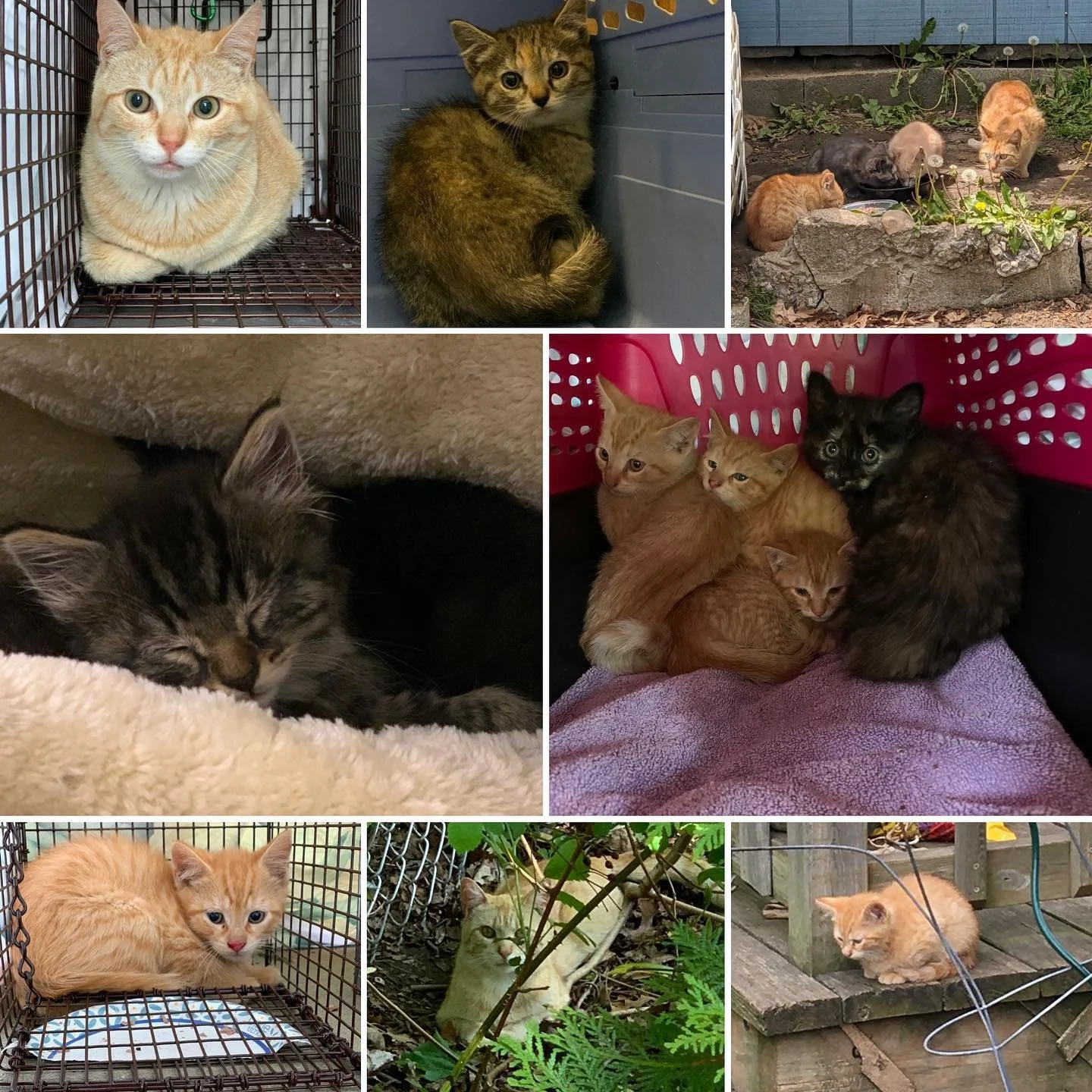What is TNR?
Adoption is great, but what about the root cause?
We all love adopting cute kitties. But shelters can’t keep up with the endless stream of strays being born outdoors. That’s where TNR (Trap-Neuter-Return) comes in.
TNR is the only humane and effective approach to reducing the number of community cats. By trapping, spaying or neutering, vaccinating, and returning cats to their outdoor homes, we stop the cycle of endless litters — and give these cats a better life.
How TNR Works
1. Trap
Cats are humanely trapped using safe, wire traps. Most live in outdoor groups called colonies.
2. Neuter (or Spay)
Cats are brought to a veterinary clinic to be spayed or neutered, vaccinated, and eartipped.
Eartipping is a small surgical removal of the tip of the left ear — the universal symbol of a fixed and vaccinated community cat.
3. Return
After recovery, the cats are returned to the exact location they were trapped. These cats continue to live outdoors but no longer reproduce.
Why It Matters
TNR not only prevents new litters — it helps existing cats, too. Fixed cats are:
Healthier (no more pregnancy or mating injuries)
Less likely to roam or fight
No longer a source of constant kitten births
It also reduces shelter intake, easing pressure on rescue groups and animal control services.
Help Us Continue This Lifesaving Work
It costs $70 minimum to trap, spay/neuter and vaccinate a single feral cat.
This includes surgery, vaccines, supplies, and recovery support — all provided by dedicated volunteers and low-cost veterinary partners.
Your donation makes it possible.
The Facts
The recommended age for spay/neutering is 2-6 months of age
Female animals should be spayed before their first heat; they do not need to have a litter before being spayed
Spaying or neutering your pet can decrease the risk of diseases contracted by mating, and injury from fighting or chasing after an animal for mating
Pets who are spayed/neutered have decreased or zero risk of certain types of cancer (e.g., testicular cancer, mammary cancer)
Altering your pets reduces and often eliminates annoying behaviors
And, most importantly, spay/neutering ends the chance of generations of future homeless animals!





